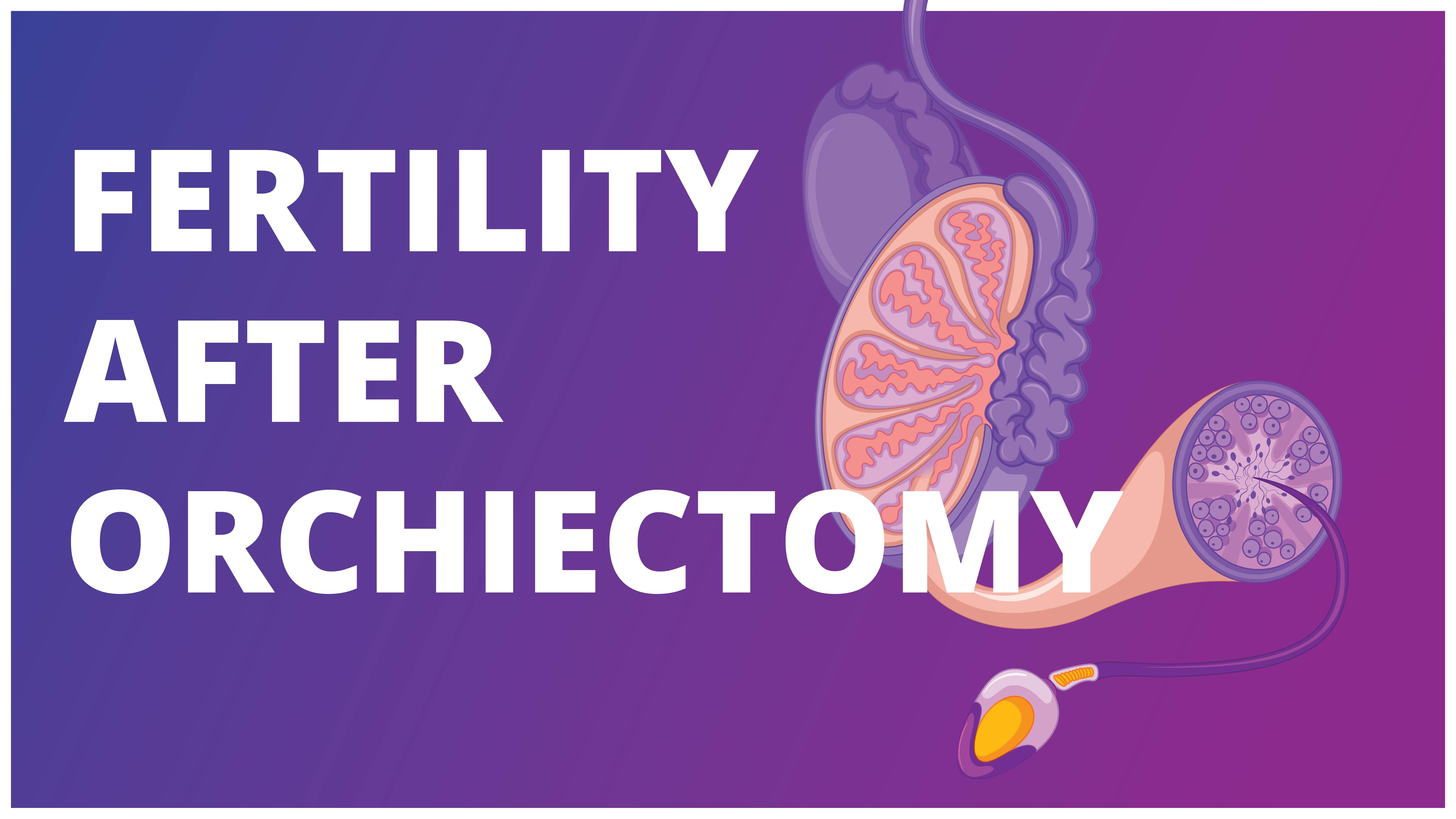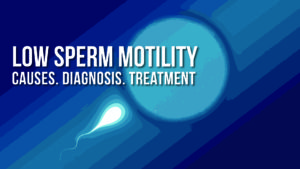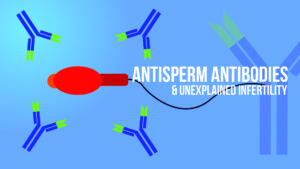Have you undergone an orchiectomy, or are you are awaiting an orchiectomy soon as recommended by your doctor? In simple terms, orchiectomy is the removal of one or both of your testicles. You may be wondering whether you can preserve your fertility and father a child after undergoing an orchiectomy.In this article, I’m going to tell you all the things you want to know about orchiectomy, its impact on your fertility and available fertility preserving methods. So let’s begin our journey, starting from knowing what this orchiectomy and why the doctors recommend and advice you to undergo orchiectomy.
What is orchiectomy?
Orchiectomy is also known as orchidectomy. It is the surgery performed to remove the testis. Orchiectomy can be either unilateral or bilateral. In unilateral orchiectomy, surgeons remove only one testis. In bilateral orchiectomy, both testes are removed. Testicles are the most important fertility determining organ of males. Then why would the doctors suggest removing your testes?
Well, there are several reasons to suggest orchiectomy. They are,
- Testicular cancers
- Testicular torsion
- Accidental damage to the testis
- Advanced prostrate cancer
Let’s briefly learn about each of these indications for orchiectomy.
Testicular cancers
The most commonly identified testicular cancer type is a germ cell tumor. This tumor can be subdivided into seminoma and non-seminomatous germ cell tumors.
Among those cancer types, Seminoma is more common in men in their middle and elderly age. The most common form of cancer identified in young men is a non-seminomatous germ cell tumor.
Testicular cancer Types
- Germ cell tumors (90-95%)
- Embryonal Cell Cancer
- Yolk Sac Tumor
- Testicular Teratoma
- Testicular Choriocarcinoma
- Interstitial tumors (1-2%)
- Leydig cell tumors
- Lymphoma (3-7%)
- Other (1-2%)
Clinical presentation of testicular cancers
These testicular cancers commonly present with a painless lump in your testis. In some cases, you may experience a sensation of heaviness and pain in your testis. Also, these cancers can present with epididymo-orchitis (inflammation of your epididymis and testis) or sudden severe pain and sudden enlargement of the testis.
Testicular cancers can either be confined to your testis or else it can spread to other parts of your body. This cancer can spread mainly through your lymphatic channels. Cancer can spread into your lymph nodes, to your abdominal organs, and your lungs.
Why it is important to do orchiectomy if you are having testicular cancer?
Well, the importance of doing orchiectomy in testicular cancer is to remove the tumor from your testis and to prevent its further spread in your body.
According to your testicular cancer type and its severity, doctors will decide the available treatment option for you. Available treatment modalities can be simply classified as,
- Radical orchiectomy – It can be either unilateral or bilateral removal of your testes
- Partial orchiectomy – In this surgery, only the tumor has been removed by doctors. Some parts of your testis can be preserved doing this surgery.
- orchiectomy combined with chemotherapy
- Orchiectomy combined with radiotherapy– As some cancer cells are radiosensitive, doctors use radiotherapy combined with orchiectomy to treat some patients with testicular cancers.
- Orchiectomy combined with chemotherapy and radiotherapy
Testicular torsion
Testicular torsion is a surgical emergency. It is most common in young age group, usually between 10- 25 years of age. In testicular torsion, testicle twists and it will lead to cut off of blood supply to the testis. If this blockage is not reversed immediately, your testis will die due to the loss of blood supply.
Testicular torsion can present with sudden unbearable pain in the testis or as lower abdominal pain. If you attend to the hospital immediately, doctors will perform surgery to untwist and restore the blood supply to recover the blood supply to the testis. If you undergo the surgery within six hours of its presentation, it is said that the salvage rate of the testis is 100%. Delayed surgery will reduce the viability of your testis. If the surgery is delayed for 24 hours, the salvage rate becomes less than 20%.
During surgery, If the doctors identified that your testis is no longer viable and is infarcted (cell death due to cut off of the blood supply), then at that time, the doctors will perform orchiectomy to remove your infarcted testis.
Accidental damage to the testis
Blunt trauma like, a direct blow to the testis or penetrating trauma can damage the testis. If the injury to the testis is severe, it is an indication for the surgical exploration of the testicles. If the testis cannot be preserved, on that occasion, performing an orchiectomy is necessary.
Advanced prostate cancer
In advanced prostate cancer, the cancer cells can spread beyond your prostate gland. Advanced prostate cancer can be either locally advanced or metastasized. In locally advanced prostate cancer, cancer cells may spread into the adjacent organs like the seminal vesicles, bladder, ureters, and the rectum. In the distant spread of prostate cancer, cancer cells spread through the bloodstream and lymphatic channels. From these pathways, it can spread mostly to your bones, breast, lungs, kidney, thyroid gland, and lymph nodes.
Orchiectomy is one of the androgen ablation methods used by doctors. What is androgen ablation? Androgen ablation is the elimination of testosterone production in the body. Therefor in advanced prostate cancer, bilateral orchiectomy is performed by the doctors as a method of androgen ablation.
Why are the testicles so important for your fertility?
Testicles are one of the major organs of the male reproductive system. They are located in a sac known as the scrotum. The importance of your testicles is that it is the organ that produces sperm, the male seed for fertilizing an egg from the female. The hormone called testosterone is also produced in the testis.
Sperm production is carried out by germ cells in the seminiferous tubules of the testis. For sperm production and maturation, two other cell types are important.
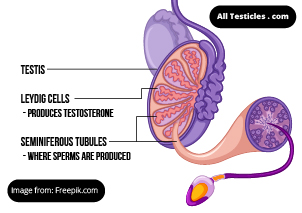
- One cell type is in the seminiferous tubules. It is known as the Sertoli cell. These Sertoli cells provide the necessary environment for spermatogenesis. It helps to produce mature sperms.
- The other cell type is Leydig cells. They are located adjacent to seminiferous tubules. These Leydig cells are important for testosterone hormone production.
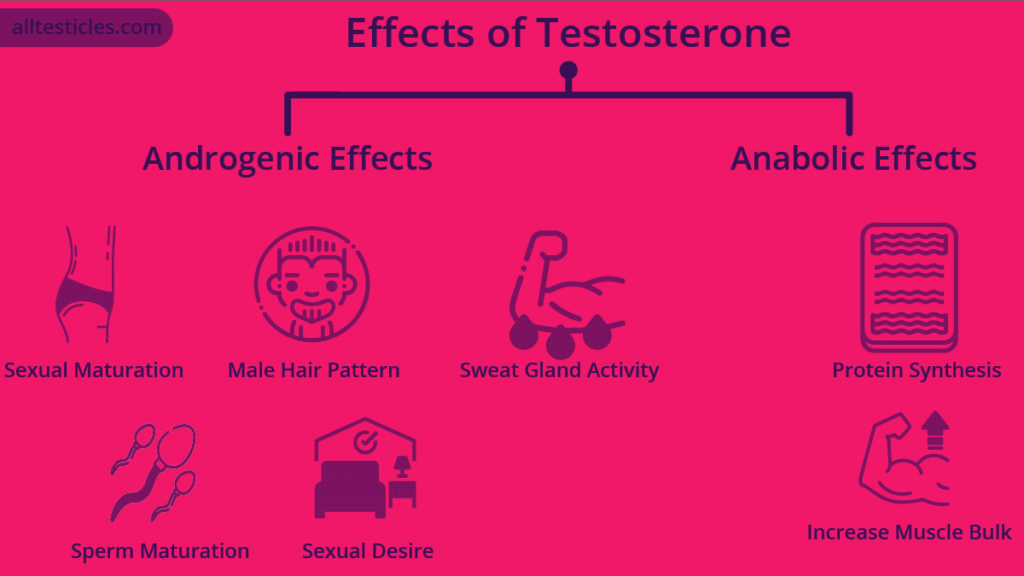
Testosterone has so many functions in the male body. It is an important hormone for the development of secondary male sexual characteristics. It is also important for the maturation of sperms. It also determines the desire for sexual activities (libido).
Now, it’s time to know the changes after the orchiectomy.
Fertility after orchiectomy
Fertility After bilateral orchiectomy
In bilateral orchiectomy, doctors remove the testicles. Sperms and testosterone are completely stopped. Therefore you are no longer capable of producing offspring after bilateral orchiectomy. It’s a cause of male infertility.
Fertility After unilateral orchiectomy
In this surgery, your doctor removes only one testis. The remaining testis can produce sperms and testosterone hormones. Therefore your fertility is usually preserved after this surgery.
But some factors determine the fertility after a unilateral orchiectomy. They are,
- Condition of the remaining testis- to produce healthy sperms and testosterone your remaining testis should be healthy.
- Fertility before orchiectomy – if you have a pre-existing problem with your fertility before undergoing the surgery, it may get worse after the surgery.
- Your age- it is a known factor that with aging you will experience a reduction of your fertility.
- Time of the diagnosis of your testicular cancer: The sooner the cancer is diagnosed and treated, better the fertility returns.
Fertility after Orchiectomy combined with chemotherapy
In this treatment method, chemotherapy is used to destroy rapidly dividing cancer cells in the testis. Chemotherapy agents can also destroy the rapidly dividing healthy cells in the body. Germ cells in your testicles produce sperm by rapid division. When the chemotherapy agents are used to treat testicular cancer, it can also destroy these germ cells in the testis. Normal sperm production gets impaired. So it has a direct impact on your fertility.
It was reported that sometimes after the completion of chemotherapy, you can re-achieve the ability to produce sperms as previously. In some instances, orchiectomy combined with chemotherapy results in permanent infertility in men.
Damage from chemotherapy can depend on,
- The type of chemotherapy agent
- The duration and the dose of chemotherapy
Fertility after orchiectomy combined with radiotherapy
Radiotherapy is used to treat seminomas as they are radiosensitive tumors. In radiotherapy, radiation is directed at the testes or the pelvic area near the testicles. It can damage the sperm-producing germ cells. So it badly affects your fertility.
Fertility after RPLND surgery
RPLND surgery is retroperitoneal lymph node dissection surgery. This surgery is performed when testicular cancer has spread to your retroperitoneal lymph nodes.
The semen containing sperms comes out from your penis in anterograde ejaculation. This anterograde ejaculation is controlled by the sympathetic nerves that travel in and around your retroperitoneal lymph nodes. During RPLND surgery, these sympathetic nerves can get damaged either temporarily or permanently. Because of this damage, you will experience retrograde ejaculation. In retrograde ejaculation, semen will not come out from your penis. Instead, it will go backward and go into the bladder.
But there is no need to worry. This retrograde ejaculation does not make you an infertile male. There are methods available to retrieve your sperm to use in assisted reproductive techniques.
Many research articles can be found in the research history conducted by doctors and scientists to see the correlation between orchiectomy combined with radiotherapy, chemotherapy and RPLN surgery and fertility of men.
Let’s see what they have found from these researches about fertility after orchiectomy.
● A human fertility research group in a French hospital has researched by including 451 patients with testicular cancer to see the fertility of them after testicular cancer treatment. From that study, they have found out that if you are a patient with testicular cancer, after the treatments, it can cause a 30% reduction of your fertility. Also, they have found out that radiotherapy has the most harmful effects on your fertility.
●Department of Urology in Indiana University Medical center in the USA has conducted a study to see the ejaculatory status and fertility rates after primary retroperitoneal lymph node dissection. They have conducted this study using 280 male patients who have undergone primary retroperitoneal lymph node dissection. From their study, they have found out most men who undergo this surgery have maintained antegrade ejaculation.
● Japan medical school has conducted another study to see the function of testicles of testicular cancer survivors who have been treated with cisplatin-based chemotherapy. From there study, they have found out that the patient achieved normospermia within an average of 40 months. Their findings may help to predict whether spermatogenesis will recover and its timing. Also, they expect that their study may also help doctors to identify and manage testicular cancer patients at high risk of prolonged azoospermia after chemotherapy.
What are the available Fertility preserving methods?
If you are undergoing orchiectomy soon and if you want to be a father after the surgery, this question may come into your mind repeatedly.
Well, of course, there are methods to preserve fertility. The most important fertility-preserving method is sperm banking. Let’s see what this sperm banking is.
Sperm banking also is known as cryopreservation. In this method, your semen sample is collected from masturbation before you undergo the surgery. This collected sperm will be frozen. It is a cryopreservation. From this method, sperms can be preserved for a very long period. These cryopreserved sperms can be used in assisted reproductive techniques in many years later. Cryopreservation is a safe and effective way of preserving your sperms. This method does not alter the genetic material in your sperms.
There are available several assisted reproductive techniques that your cryopreserved sperm can be used.
- Intrauterine insemination (IUI)
- In vitro fertilization (IVF)
- Intracytoplasmic sperm injection (ICSI)
In a research study, it has been found out that cryopreservation before undergoing chemotherapy or radiotherapy is the most cost-effective method of fertility preservation.
You can ask more details about this cryopreservation from your doctor before undergoing an orchiectomy, especially in patients with testicular cancer who will receive chemotherapy and radiotherapy in the treatment course.
I think you were able to grab an adequate knowledge about fertility after orchiectomy. Feel free leave a comment.

